How can science-fiction narratives help anticipate future technology developments and their impact on society? This is the departing question of the I EELISA Science-fiction Short Stories Contest led by Universidad Politécnica of Madrid (UPM) and launched under the title ¨Engineering New Worlds¨.
China will be the guest country for this First Edition that aims for global scope. An initiative with over 6.000 euros in prizes, that will encourage students from different cultures to use their knowledge and creativity to speculate on the impact of technology in society and envision different short- or long-term future scenarios for mankind through fictional stories.
Starting on April 28th, and preceding the call for stories submission on June 15th, EELISA will offer a series of lectures that will give insight into the role of speculative literature in raising awareness on the potential of technology to impact societies and stress the value of visionary thinking to improve people’s lives, our planet and the physical and digital ecosystems that will become our habitat of tomorrow.
These talks will provide participants with an overview of speculative literature in connection with engineering and technical developments, and equip them with a framework and basic tools to turn their engineering knowledge -and its potential implications for humanity- into an engaging science fiction story.
¨In such challenging times as the one we are living in, blending scientific and technical knowledge with speculative literature can be a powerful tool to find solutions. This is an example of a much-needed interdisciplinary approach and one of the pillars of EELISA¨, says Executive Director, Sofia D´Aguiar.
For Claudio Feijoo, Rector´s delegate for entrepreneurship at UPM: ¨the capability to envision future scenarios and creativity are the elements that move innovators and entrepreneurs to change the present. And most future scenarios are envisioned within fictional narratives¨. This would explain the increasing interest of engineer students in science-fiction. ¨We are in the midst of a Golden Era for science-fiction, especially for Chinese writers such as Cixin Liu or Hao Jingfang¨, explains Miguel San Gregorio, one of the lectures program and contest organizers.
I EELISA Science Fiction Contest & Lecture Series Collaborators: Casa Asia, Alianza Editorial, Guomai Editors and the Spanish Embassy in China (Ministry of Education).
¨Mundos posibles, un diálogo sobre la ciencia ficción china¨ .
- This session, organized by Casa de Asia, will be held in Spanish. More info and registration here
¨Science Fiction Transmedia and the Future of Humans¨
Science fiction lives in multiple media and good sci-fi stories go beyond the original format in which they were conceived, in the same ways that humans are pushing the barriers of technology and making blurrier the border between the digital and the physical world.
Lecturers:
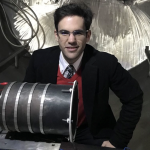 Miguel L. San Gregorio is a MSc from the Technical University of Madrid (UPM) and PhD from the Beijing Institute of Technology (BIT), both in aerospace engineering. Based in China since early 2015, he is currently working at the R&D department of Airbus China. On 2017, he was awarded the first prize of th China Daily essay competition and received the China Scholarship Council Award in 2017 and 2018. He is an avid Chinese fiction reader and a science fiction writer with two published novels.
Miguel L. San Gregorio is a MSc from the Technical University of Madrid (UPM) and PhD from the Beijing Institute of Technology (BIT), both in aerospace engineering. Based in China since early 2015, he is currently working at the R&D department of Airbus China. On 2017, he was awarded the first prize of th China Daily essay competition and received the China Scholarship Council Award in 2017 and 2018. He is an avid Chinese fiction reader and a science fiction writer with two published novels.
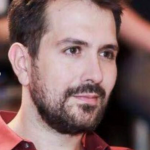 Javier Fernández Díaz is a PhD from University of Barcelona and has specialized in EdTech and innovative teaching methodologies. He currently works in the Spanish Embassy in China (Ministry of Education of Spain) developing cooperation programs between the two countries. He co-funded the Beijing chapter of Singularity University in Beijing on 2017. As an author, he has published the graphic novel Estrella Distante for Random House and is currently preparing a Science Fiction Anthology with Excelsior Films.
Javier Fernández Díaz is a PhD from University of Barcelona and has specialized in EdTech and innovative teaching methodologies. He currently works in the Spanish Embassy in China (Ministry of Education of Spain) developing cooperation programs between the two countries. He co-funded the Beijing chapter of Singularity University in Beijing on 2017. As an author, he has published the graphic novel Estrella Distante for Random House and is currently preparing a Science Fiction Anthology with Excelsior Films.
¨Engineers and designers of the future¨.
What is the connection between science fiction and engineering? And what does science fiction have to do with engineering? In this lecture we will find out why these two disciplines are so connected with speculative narratives.
Lecturers:
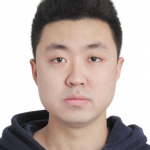
Yuxuan Yang is a creative designer who worked with many Car OEMS and organizations, like Audi China, Mclaren F1, Autonomous driving vehicle for CES show, etc. He holds a BA in industrial design from the Beijing Institute of Graphic Communication and a MA in Intelligent Mobility, MA in Service Design from the Royal College of Art. He is in charge of designing new vehicle concepts and the entire service system around it.
 Richard Robinson advises and invests in companies and helps them crack the Chinese and Asian markets. He teaches at two top universities in China: Peking University’s Guanghua International and Tsinghua University. He has been co-founder and Senior Executive of eight successive startups as well as investor, board member, adviser, and mentor of dozens of others (HAX, Chinaccelerator & 500). Active in the geek-o-system in Asia/globally, he speaks frequently at conferences (MC’ed: Web Summit Lisbon & Dublin, TechCrunch Beijing, GMIC Beijing & Silicon Valley, Rise Hong Kong and TechInAsia Singapore & Jakarta).
Richard Robinson advises and invests in companies and helps them crack the Chinese and Asian markets. He teaches at two top universities in China: Peking University’s Guanghua International and Tsinghua University. He has been co-founder and Senior Executive of eight successive startups as well as investor, board member, adviser, and mentor of dozens of others (HAX, Chinaccelerator & 500). Active in the geek-o-system in Asia/globally, he speaks frequently at conferences (MC’ed: Web Summit Lisbon & Dublin, TechCrunch Beijing, GMIC Beijing & Silicon Valley, Rise Hong Kong and TechInAsia Singapore & Jakarta).
¨Sci-fi: Foundations of Innovation in Storytelling¨
This lecture will explore the literary foundations of science fiction and how this genre produces fictional stories that turn into the seed for innovation.
Lecturers:
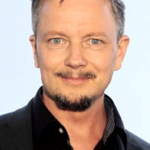 Albrecht Fritzsche is acting chair of technology and process management at Ulm University. He is also a senior lecturer at the School of Business, Economics and Society of Friedrich-Alexander University Erlangen-Nürnberg. He holds a doctoral degree in philosophy from TU Darmstadt and in industrial management from Hohenheim University, Stuttgart. He has over fifteen years of experience as a systems specialist and strategy consultant in the manufacturing industry and has worked on numerous different assignments in Germany, China and other countries.
Albrecht Fritzsche is acting chair of technology and process management at Ulm University. He is also a senior lecturer at the School of Business, Economics and Society of Friedrich-Alexander University Erlangen-Nürnberg. He holds a doctoral degree in philosophy from TU Darmstadt and in industrial management from Hohenheim University, Stuttgart. He has over fifteen years of experience as a systems specialist and strategy consultant in the manufacturing industry and has worked on numerous different assignments in Germany, China and other countries.
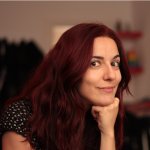 Susana Arroyo Redondo holds a PhD in Literature Theory and is currently a professor at the Xi´an International Studies University (XISU), in China. She has been an editor at Cambridge University Press, a co-founder of the science fiction publisher Fata Libelli, a cultural writer for El Confidencial, as well as a translator and coordinator of numerous projects related to genre literature in both Chinese and Spanish.
Susana Arroyo Redondo holds a PhD in Literature Theory and is currently a professor at the Xi´an International Studies University (XISU), in China. She has been an editor at Cambridge University Press, a co-founder of the science fiction publisher Fata Libelli, a cultural writer for El Confidencial, as well as a translator and coordinator of numerous projects related to genre literature in both Chinese and Spanish.
¨How to Write a Science Fiction Story?¨
What are the key elements of a good science fiction story? How are characters developed? Let’s find answers to these questions -and beyond- with a seasoned scriptwriter.
Lecturer:
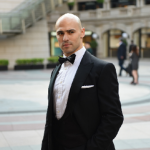 Ian Powers (also known as 恒力 Heng Li) is the chief creative officer of Excelsior Pictures. He’s an innovator and creator within the entertainment industry whose career has taken him all over the world. Originally a drama major from New York, Ian has had a prolific career and has worked on numerous feature films, shorts, commercials, and over a hundred television episodes. Ian is experienced in production, directing, and screenwriting. He also has a deep understanding of how to tell universal stories for a wide audience. In addition to screenwriting, he writes science fiction stories.
Ian Powers (also known as 恒力 Heng Li) is the chief creative officer of Excelsior Pictures. He’s an innovator and creator within the entertainment industry whose career has taken him all over the world. Originally a drama major from New York, Ian has had a prolific career and has worked on numerous feature films, shorts, commercials, and over a hundred television episodes. Ian is experienced in production, directing, and screenwriting. He also has a deep understanding of how to tell universal stories for a wide audience. In addition to screenwriting, he writes science fiction stories.
Session hosted by Marta Olea Cárdenas, Deputy Vice- Rector of Communications at the Universidad Politécnica of Madrid (UPM)

